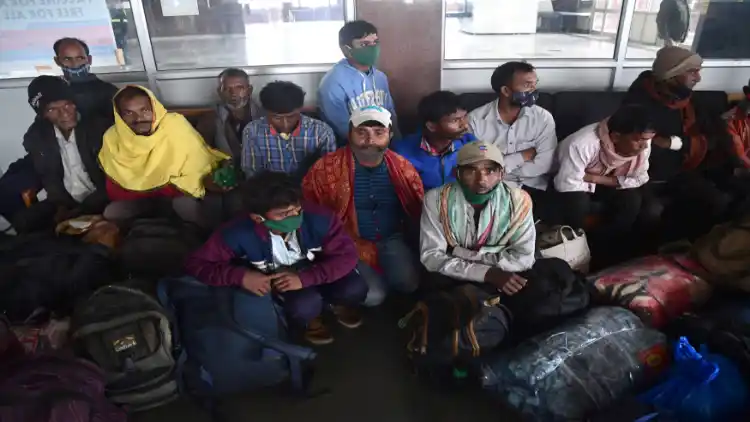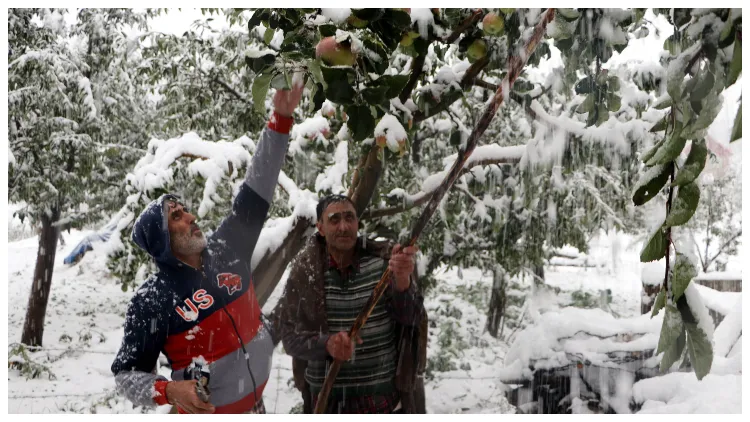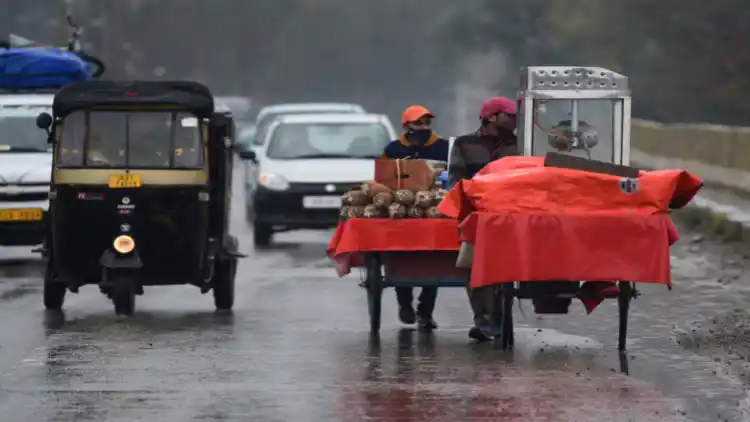
Ehsan Fazili/Srinagar
With the killings of at least 12 civilians including five migrant labourers in Kashmir valley this month, a large number of workers engaged in construction work and farm sector have returned home earlier this year.
in the past migrant workers from Bihar, UP, Rajasthan, and Odhisa returned to their homes for a few months of harsh winter when all the construction and other outdoor activities come to an end in the Valley. However, this year, due to targeted killings, most of them have left early. The migrant labourers were targeted by the terrorist group that calls itself The Resistance Front (TRF) though the government says it’s a pseudonym for the Pakistan-based Lashkar-e-toiba (LeT).
Kashmiri society is heavily dependent on migrant labourers with most of them engaged in construction, agriculture, and, of late, as domestic helps for the well-off families. Besides, they have also introduced street food like golegappa and bhelpuri, etc. in Kashmir.
Their exodus has also hit the harvesting of apples in the Sopore and Shopian-Pulwama areas of South Kashmir.
 Residents desperately trying to harvest apple crop hampered due to the flight of labourers
Residents desperately trying to harvest apple crop hampered due to the flight of labourers
Though there is no headcount of the labourers, most of them have returned to their homes within days of the killing of Virender Paswan, a golegappa seller from Bihar's Bhagalpur.
“We had no problems in working here,” Shahnawaz who hailed from Bihar told Bashir Ahmed of Bandipora who had engaged him to paint his house. The next day police huddled him along with a dozen other workers who were living in a couple of rented places in a room for the night for their safety. They were released the next morning and asked to minimize their movements.
“Our families were worried and asked us to return home; they said earning at the risk to our lives is not worth it,” Shahnawaz told Bashir as he came to seek his wages and apologized for not being able to finish the painting work.
Shahnawaz and his friends left Kashmir by road up to Jammu and then boarded a train from there their respective places, Bashir Ahmad told Awaz-the voice.
However, some workers continue to stay put in Kashmir. Bashir has also managed to hire another group of migrant labourers for finishing the painting of his house. The small town is heavily dependent on masons, casual labourers, carpenters, furniture makers who come from other parts of the country.

Migrant workers selling street food on Srinagar streets
“We are a group of 30 labourers from Bihar and Uttar Pradesh….. we have been regularly spending six to eight months in Kashmir to earn our livelihood,” said one of them in Bandipore. He and others were not called to the Police Station.
“We have faced no problem. However, due to the situation and also because others have left, we too are anxious to leave. We are planning to complete our assignments in time and have booked our tickets (by air from Srinagar to Jammu) and onward on the train from Jammu,’ the leader of the group said,
The Police have issued directions to the labourers to stay put at their workplaces and restrict their movements during free time.
“Our house owners have also been taking care of us by asking us not to move around unnecessarily and reminding us to keep the doors shut”, said one of them.
“For the past 20-22 years, these labourers have been coming here (Bandipore) regularly during summer months, said another house owner, who had engaged the non-local labourers for repairing his house.
Many migrant labourers are also engaged paddy harvest during the autumn months of September-October and their exodus has adversely affected the field work.
“At least 60 to 70 percent of migrant labourers working in Srinagar have already left during the past about three weeks ever since the incidents began to take place”, said Abdul Rashid, a contractor, who has engaging labourers for construction works. "A lot of assignments remain unfinished," he said.
The first targeted killings took place on October 5 when a famous Pharmacist of Srinagar, Makhan Lal Bindroo (Kashmir Pandit) was shot dead at his shop in the Iqbal Park area and at the same time Virender Paswan, a Golgappa vendor from Baghalpur was killed in Lal Bazar, Srinagar.
Abdul Rashid said that of the 10 labourers engaged by him all had returned in panic, while only one stayed back to recover his dues. He adds that mostly the labourers would leave ahead of Diwali, but the recent incidents triggered their early return,
Many places in Srinagar city like Hawal, Rambagh, Chhanapora, and Padshahi Bagh, are known as hubs of ‘Bihari labourers.’ Anyone looking for skilled construction workers or casual labourers approaches contractors there.
Padshahi Bagh is their biggest ghetto while Hawal has a chowk called the “Bihar Chowk,” the labourers assemble there for prospective employers - individuals or contractors - to approach them.
While apple and paddy harvesting were adversely affected by the sudden flight of the labourers who have become an essential part of the local economy, people in Kashmir are hoping they would return in spring.
